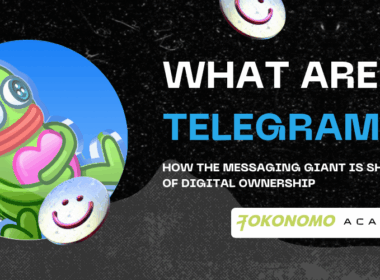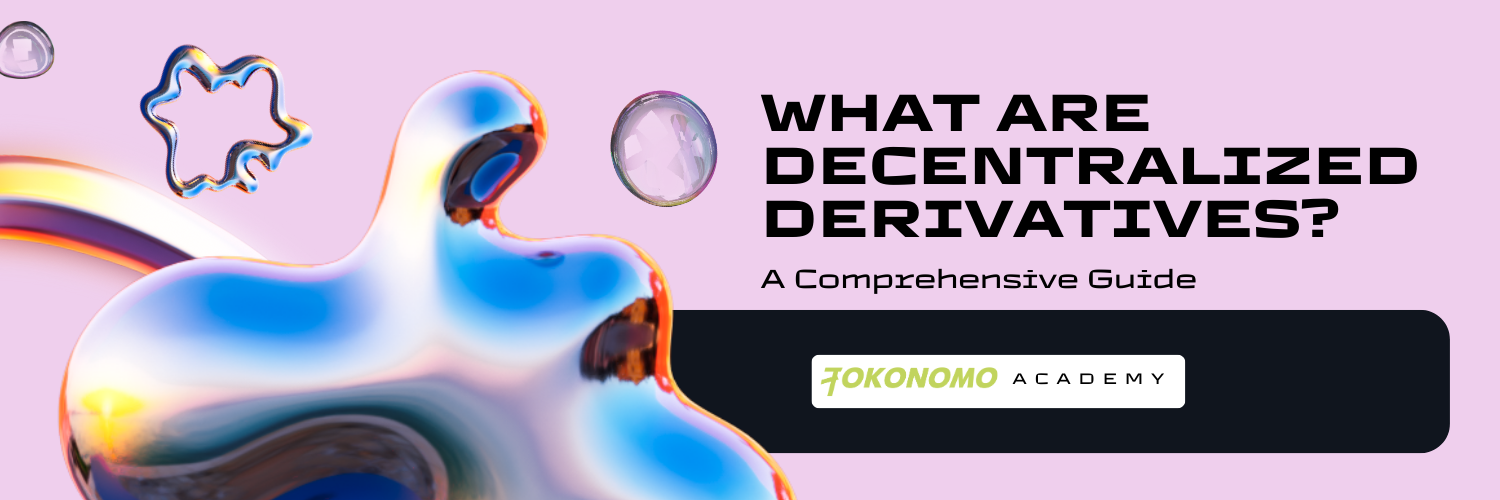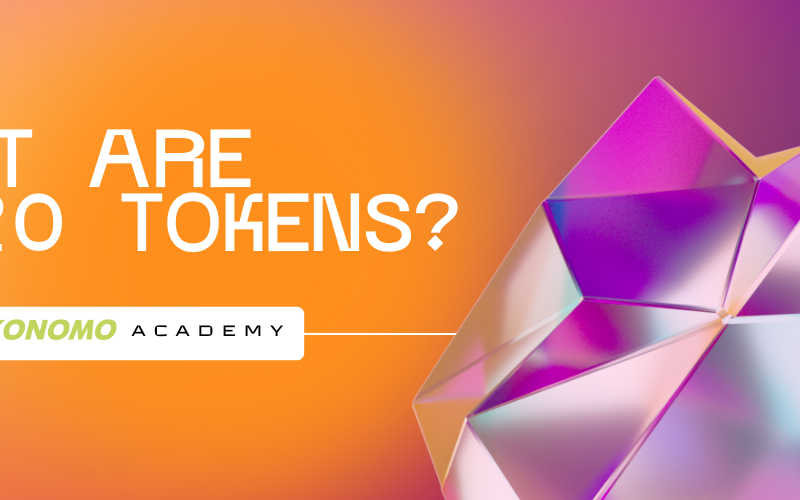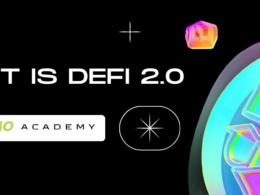What Are Derivatives?
Derivatives are financial instruments that derive their value from an underlying asset, such as stocks, cryptocurrencies, fiat currencies, or commodities. Essentially, a derivative is a contract between two parties based on the future price or value of the underlying asset.
There exist various types of derivatives, including options, futures, and swaps. Nevertheless, all derivatives operate on the same fundamental principle of allowing investors to capitalize on the future price movements of assets without having to own them outright.
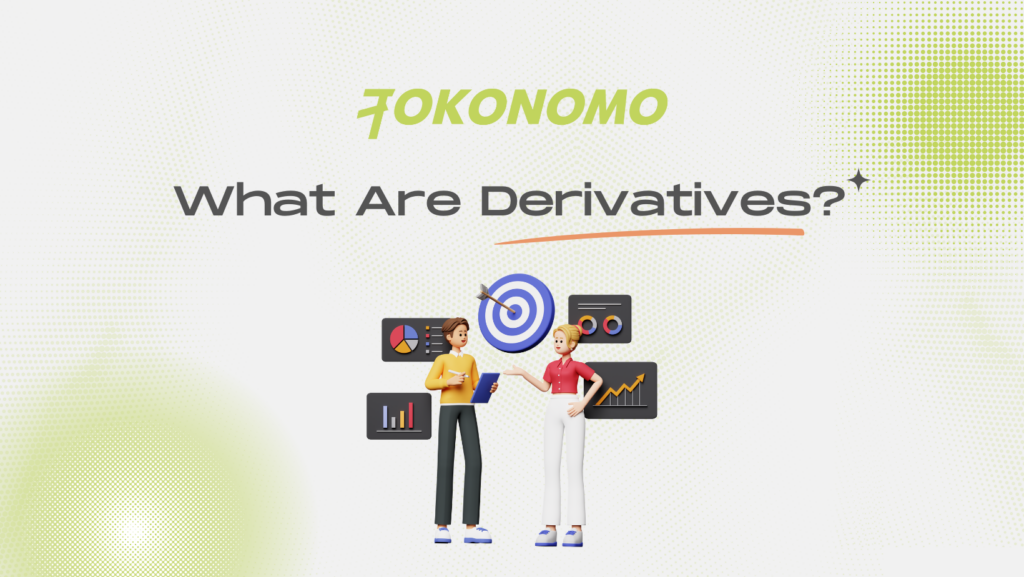

Derivatives can serve as a tool for hedging against potential risks and increasing returns through the use of leverage. For instance, a trader could employ leverage on a small amount of capital to purchase a futures contract that controls a larger amount of the underlying asset.
Additionally, some traders utilize derivatives to gain exposure to diverse asset classes and markets, thereby diversifying their portfolios. On the other hand, hedging involves assuming an opposite position on a derivative to offset potential losses on an existing investment.
It’s crucial to acknowledge that derivatives, due to their intricate nature and leverage possibilities, carry inherent risks that can amplify losses. Hence, it’s imperative to comprehend the risks and potential consequences of trading derivatives before engaging in such activities.
What Are Decentralized Derivatives in Crypto?
Decentralized derivatives, like their centralized counterparts, derive value from underlying assets. However, they are traded on blockchain-based protocols. While cryptocurrency-based derivatives are prevalent in DeFi, it’s also possible to create decentralized derivatives tied to other asset classes, such as stocks.
Cryptocurrency derivative contracts enable users to profit from future price movements of an asset or hedge their positions in a transparent, trustless environment. The protocols facilitating decentralized derivatives often have low entry barriers because users can connect to them with their crypto wallet.
These protocols typically allow users to maintain control of their assets and keys. As a result, users are not required to transfer their assets to a centralized platform or third-party custodian. This feature also enables users to easily transfer their assets between different protocols for their DeFi strategies without undergoing lengthy withdrawal processes.
How Do Decentralized Exchanges (DEXs) For Derivatives Operate?
Decentralized Derivative Exchanges (DEXs) operate on blockchain networks to facilitate transactions directly between users, eliminating the need for intermediaries. The blockchain serves as an immutable, tamper-proof ledger that records all transactions and contract executions in a decentralized manner. This ensures that once a transaction is validated and added to the blockchain, it cannot be altered or removed.
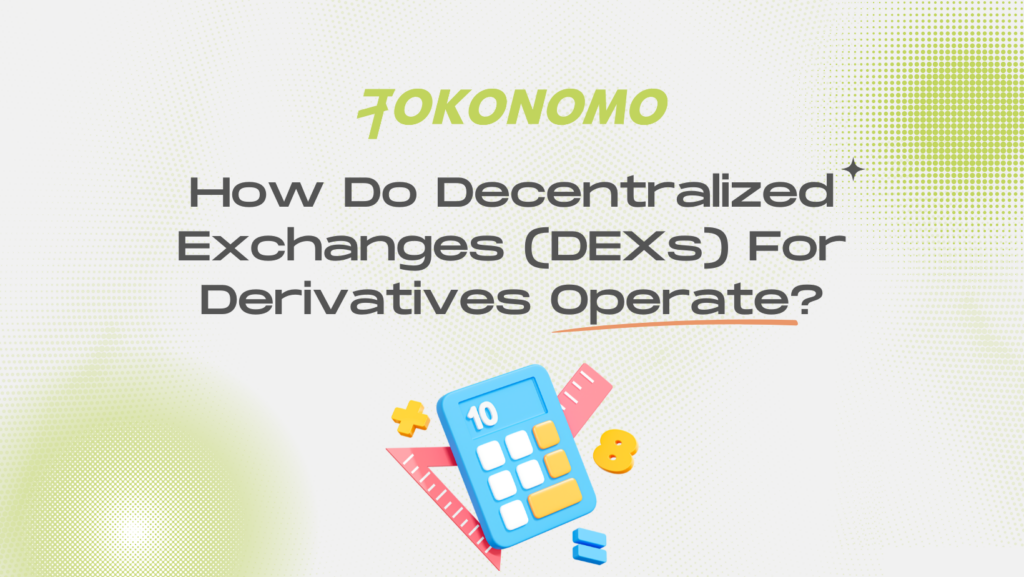

Decentralized derivative protocols can be developed on various blockchains, including Ethereum, BNB Chain, Solana, or Layer 2 solutions. However, different blockchains offer varying levels of security, scalability, and transaction costs, which can impact the user experience and overall performance of a derivative protocol.
Some derivative DEXs focus on achieving cross-chain compatibility and interoperability, enabling users to trade derivatives across different blockchains.
Another essential technology is smart contracts, which can execute transactions automatically without the need for intermediaries. These contracts embody terms and conditions directly coded within them and carry out transactions and other functions (such as staking and governance) upon meeting predefined conditions.
Derivative protocols often rely on blockchain oracles to provide accurate price data and maintain a connection to real-world assets. These oracles vary in terms of decentralization, data accuracy, and update frequency, which can impact the platform’s reliability.
Decentralized derivative protocols typically adopt decentralized governance models, allowing users to participate in decision-making to varying degrees. However, some protocols may have more decentralized governance structures, while others may rely on more centralized decision-making processes.
Native tokens also play a crucial role in decentralized derivative protocols. For example, through decentralized autonomous organizations (DAOs), some platforms enable token holders to participate in governance and vote on proposals related to protocol upgrades and other changes.
Tokens can also serve as an alternative to stablecoins for providing collateral for trades, or a DEX could use its native token to incentivize market makers by collecting exchange fees and distributing them to those who provide liquidity to the platform.
Types of Decentralized Derivatives in Crypto
Futures Contracts
Futures contracts are financial agreements enabling traders to profit from future price movements of underlying assets. Such contracts involve agreeing to buy or sell an asset at a predetermined price and date in the future.
In traditional finance, futures contracts typically trade on centralized exchanges (CEXs). DeFi allows traders to access futures contracts in a decentralized, permissionless environment, enabling direct trading on a blockchain network without intermediaries.
Decentralized futures can be perpetual or have a fixed expiration date. Perpetual futures aim to replicate traditional futures trading without an expiration date or settlement. They are the most common DeFi derivative contracts, offering greater flexibility and accessibility compared to regular futures. Nonetheless, they entail risks like high leverage and potential high funding fees.
Options Contracts
An options contract, whether traditional or related to cryptocurrency, is a financial agreement granting the holder the right, but not the obligation, to buy or sell an underlying asset at a predetermined price before a specified date (expiration date). Such contracts are commonly used to hedge against price fluctuations or to speculate on future price movements.
For instance, if an investor holds ETH and fears potential downside risk, they might purchase a put option. This option allows them to sell ETH at a specified price, shielding them from losses if ETH’s price drops below that level.
Conversely, investors can use options to capitalize on a cryptocurrency’s future price movements. By purchasing a call option, an investor gains the right to buy the underlying asset at a predetermined price if its price surpasses the strike price.
Synthetic Assets
Synthetic assets, often referred to as “synths,” are digital representations of different assets, offering an accessible means to hold and trade them. They are essentially tokenized derivatives utilizing blockchain technology to replicate the value and even some characteristics, such as inflation, of their underlying assets.
Despite sharing similarities with stablecoins, synthetic assets are more diverse as they can represent a wide array of assets, including stocks, precious metals, altcoins, options, and futures. While they aim to closely mimic the value of the underlying assets, they are not directly backed by them.
Therefore, synthetic assets aim to leverage the transparency and openness of blockchain technology, enabling anyone anywhere to access various assets without encountering significant barriers. They play a role in establishing a permissionless investment environment that is also connected to traditional assets.
What Challenges Do Derivatives Face in The DeFi Space?
Understanding the risks associated with trading decentralized finance (DeFi) derivatives is crucial before engaging in such activities. Trading DeFi derivatives is generally riskier than trading cryptocurrencies due to their complexity and volatility. Consequently, the potential gains or losses can be significantly higher compared to regular crypto trading.
Another aspect to consider is liquidity. Decentralized exchanges (DEXs), where most DeFi derivatives are traded, are still relatively new. This means they may have lower trading volumes, making it more challenging to execute trades instantly. Additionally, DEXs are not as user-friendly as traditional crypto exchanges, especially for newcomers who may encounter issues such as connecting wallets, forgetting passwords, or losing seed phrases.
Furthermore, while centralized platforms offer real-time trading unaffected by block times, using a DEX’s on-chain order book can sometimes be problematic due to network congestion, leading to increased fees.
Security is a major concern when trading DeFi derivatives. DEXs are not immune to hacking and have vulnerabilities. For instance, smart contracts, which govern DeFi protocols, can contain bugs that could cause derivative contracts to fail.
There have been several instances where DeFi platforms suffered significant losses due to smart contract vulnerabilities. To mitigate these risks, it is essential to conduct thorough research (DYOR) on the platform’s team, the types of derivatives offered, and the security of its smart contracts.
Conclusion
As DeFi derivatives gain prominence, investors can leverage price shifts of underlying assets in a trustless setting. With ongoing advancements in blockchain technology, a broader array of DeFi derivatives is likely to surface. However, it’s crucial to assess your trading expertise and risk tolerance, and carefully weigh the potential losses before engaging in any financial transactions.
